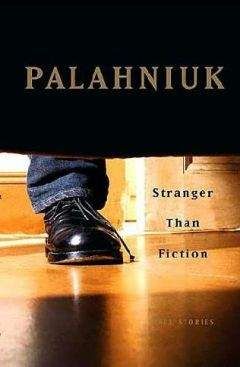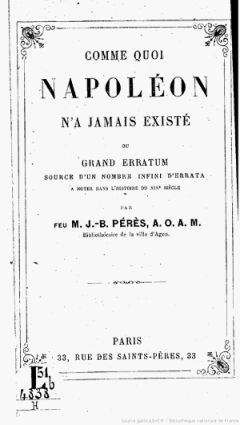Clive Cussler - Spartan Gold
“Let’s call it a dueling scar.”
She turned his head this way and that, inspecting his face and neck and probing with her fingers until Sam reached up and gave her hand a reassuring squeeze. “I’m okay, Remi. Kholkov might have heard the shots. We better get moving.”
“Right.” She lifted the nearest seat cushion and dug around until she found a rag, which Sam pressed to his wounds. Remi gestured tentatively toward the water. Is he . . .”
“Gone. He didn’t give me much choice.” Sam sat up, rolled onto his knees, and stripped off his Windbreaker and sweatshirt. “Wait, the gun . . .”
“Already got it. Here.” She handed him the revolver, then settled into the driver’s seat as Sam untied the bow line. Remi turned the ignition and the engine rumbled to life. “Hold tight.” She shoved the throttle to its stops and the speedboat surged through the doors.
“Look for an emergency kit,” Remi said. “Maybe there’s one of those space blankets.”
Sam checked beneath each seat cushion until he found a large tackle box. Inside, as Remi had predicted, he found a rolled-up silver Mylar sheet. He unrolled it, draped it around him, then settled into the passenger seat.
Later Sam wouldn’t remember hearing the sound of the other engine over the roar of their own—only seeing the white wedge of the speedboat’s bow emerging from the mist to his left and the orange firefly winks of Kholkov’s gun.
“Remi, hard right!”
To her credit, Remi reacted instantly and without question, spinning the wheel over. The boat slewed sideways. Kholkov’s bow, which had been aimed directly at Sam’s passenger seat, glanced off the hull and slid over the gunwale. Already ducking, Sam jerked his head sideways and felt the fiberglass hull skim over his hair. Kholkov’s bow crashed through the corner of the windscreen, shattering glass and twisting aluminum, then crashed back down into the water. Sam caught a glimpse of the boat arcing away to the left.
From the floorboards, Sam asked, “Remi, you okay?”
“Yeah, I think so. You?”
“Yes. Turn hard left, go for five seconds, then shut off the engine.”
Again Remi asked no questions and did as Sam asked. She throttled down, shut off the ignition, and the boat glided through the water until finally stopping. They sat in silence, the boat gently rocking from side to side.
Sam whispered, “He’ll circle back. He’ll assume we kept going in the same direction for a while.”
“How do you know?”
“Natural instinct to panic and run directly away from him.”
“How many bullets do we have in that thing?”
Sam pulled the revolver from his belt. It was a five-shot Smith & Wesson .38. “Two gone, three left. When we hear him off to our right, head left toward the shoreline. Go as fast as you can for thirty seconds, then throttle down again.”
“Another hunch?”
Sam nodded. “That we’ll run straight for Schönau.”
“We’ll have to eventually. It’s either that or we hike for three days through the mountains in this snowstorm.”
Sam smiled. “Or plan C. I’ll explain later. Shhh. You hear that?”
Moving from left to right off their bow came the sound of an engine. After a few moments the pitch changed, echoing off the shoreline.
“Go!” Sam rasped.
Remi started the engine, jammed the throttle forward, and swung the boat to port. They drove for a count of thirty, then throttled back down and coasted to a stop. It was silent save the lapping of waves on the boat’s hull. The wind had slackened to an almost dead calm; fat snowflakes began piling up on the gunwales and seats.
“What’s he doing?” Remi whispered.
“Same thing we are. Listening. Waiting.”
“How do you know?”
“He’s a soldier; he’s thinking like one.”
Directly astern, perhaps two hundred yards distant, they heard an engine revving. Remi’s hand moved to the throttle. Sam said, “Not yet.”
“He’s close, Sam.”
“Wait.”
Kholkov’s engine kept coming, closing the distance. Sam pointed astern and to their left, then held his index finger to his lips. Barely visible through the falling snow, a ghostly, elongated shape glided past. They could see a man-shaped silhouette standing behind the wheel. Kholkov’s head pivoted left and right. Sam raised the revolver and took aim, tracking the boat until it faded from view. After ten seconds Remi let out a breath and said, “I can’t believe he missed us.”
“He didn’t. It was barely noticeable, a little pause when he turned this way, but he saw us. He’ll double back now. Reverse engines. Take us backward—slowly. Quiet as you can.”
Remi did so. After they’d covered fifty feet Sam whispered, “Slow ahead. Angle us back toward shore.” He grabbed the eight-foot boat hook from its mount below the gunwale and peered through the mist. To their left he heard water lapping on rocks. “Okay, shut it down,” he told Remi. “Ease right.”
She did so.
Silence.
Off the beam the fuzzy, conical outline of a pine tree appeared, then another. Branches stretched out toward them like skeletal fingers. Sam snagged a larger limb with the boat hook, dragged them to a stop, and hauled until the hull bumped against the bank. The snow-laden boughs formed a canopy over their heads, drooping to within a foot of the lake’s surface. Sam knelt beside the gunwale and peeked through the branches. Remi joined him.
From ahead and to the right came the revving of an engine. After ten seconds it stopped. A moment later, their boat started wallowing as Kholkov’s bow wake reached them.
“Any second now,” Sam whispered. “Be ready to move.”
As if on cue, forty feet away Kholkov’s boat drifted past, heading back toward the church docks. His engine was gurgling softly, just above idle. Then he was gone, lost in the snow.
“He didn’t see us,” Remi whispered.
“Not this time. Okay, let’s move. Follow him. Five seconds of low throttle, ten seconds of glide.”
Remi got back into the driver’s seat and they pulled out from under the boughs, came about, and fell into Kholkov’s wake.
For the next twenty minutes they continued their glide-and-throttle headway, always keeping Kholkov’s engine noise directly on their bow, going silent when he did, moving only when his engine resumed. Their progress was slow, covering less than fifty feet at a time. Saint Bartholomae’s docks drifted by on their right, the red-roofed onion domes seemingly floating in midair.
Directly off their bow Kholkov’s engine spooled up and began arcing away to the left. Sam gestured for Remi to ease right, back toward shore. “Slow and easy.” Kholkov’s engine noise was moving toward the center of the lake.
“Cut the engines,” Sam whispered, and Remi did so.
“He thinks we’re hiding out or heading back to Schönau, doesn’t he?” she asked.
Sam nodded. “He’ll set up an ambush somewhere to the north. Unfortunately for him, we’re not going to play his game.”
The minutes slipped by. Five turned into ten, then into twenty. Finally Sam said, “Okay, let’s keep going. Follow the shoreline south. Keep it just above an idle.”
“Something tells me that warm brandy is going to have to wait.”
“Would you settle for a roof over your head and a cozy campfire?”
CHAPTER 51
HOTEL SCHÖNE AUSSICHT GRÖSSINGER, SALZBURG
Message from Evelyn Torres,” Remi said, sitting down on the king-sized bed and kicking off her shoes. “Just a ‘call me.’ She sounded excited, though. She lives for this stuff.”
“First that brandy I promised you, then Evelyn,” Sam said.
“We’re going to need clothes and essentials.”
“Brandy, Evelyn, sleep, then shopping.”
Since eluding Kholkov on the Königssee, they’d been awake and on the move for over twenty-eight hours. Heading south along the shoreline at a snail’s pace, they reached the Obersee’s Salet docks an hour later and disembarked. Sam opened the boat’s scuttle cock, waited until a foot of water was sloshing on the deck, then pointed the bow toward the center of the lake and eased the throttle forward a notch. It disappeared into the snow.
Remi said, “We haven’t exactly been low-impact tourists, have we?”
“Don’t worry,” he said with a wink. “We’ll make an anonymous donation to the Saint Bartholomae’s Historical Society. They can buy a fleet of speedboats.”
From the docks they followed the gravel path inland for a half mile, then across the land bridge to the mouth of the Obersee proper, where they found another boathouse similar to the one at Saint Bartholomae’s. This one, however, had an adjacent warming room. Inside they stripped down to their underwear, draped their clothes over coat hooks on the wall, and then found a kerosene lantern around which they huddled until nightfall when Sam started a small fire in the woodstove. They spent the remainder of the night curled together around the stove then rose at eight thirty, donned their clothes, and waited for the day’s first boatload of tourists. They intermingled themselves with the crowds, strolled about for a few hours, and kept their ears tuned for any discussion of gunshots the previous day or a floating body having been found in the lake. They heard nothing. At noon they took the boat back to Schönau.
Once ashore they decided to err on the side of slight paranoia and not return to the hotel; nor would they use their rental car. Watchful for Kholkov and his men, they ducked into the nearest gift shop, then out the back door into the alley. For twenty minutes they picked their way away from Schönau’s waterfront until they found a café on a secluded side street, where they called Selma.
At two o’clock a Mercedes from a Salzburg car service pulled up before the café and three hours later, after a scenic drive, during which Remi and Sam watched for signs of pursuit, they checked into the hotel under the names Hank and Liz Truman.
Fed and warmed by the brandy, they first e-mailed Selma the photographed symbols from the Saint Bartholomae bottle, then dialed Evelyn Torres at home.
“So why the sudden interest in Xerxes and Delphi?” Evelyn asked over a speakerphone after a bit of small talk.
“Just a little project we’re working on,” Remi replied. “We’ll fill you in when we get home.”
“Well, to answer your questions in order, at the time of Xerxes’ invasion, Delphi was arguably the most sacred place in Greece. The Pythia’s predictions were sought for everything, from matters of state to marriage and everything in between. As for treasure, there wasn’t much there of tangible wealth—a few treasuries, but nothing compared to the riches of Athens. Some scholars disagree, but I think Xerxes didn’t understand Delphi’s place in Greek culture. From what few oral histories I’ve read, he considered the Oracle a novelty, like a modern-day Ouija board. He was convinced the Greeks were hiding something at Delphi.”
“Were they?”
“There’ve always been rumors, but there’s no solid evidence to support them. Besides, you know the history: Xerxes’ raiding party was turned back by the divine hand of Apollo—in the form of a well-timed rock slide. A few Persians got through and made off with ceremonial objects, but nothing of importance.”
Sam asked, “Did anything of value survive the invasion?”
“The ruins are still there, of course. Some of the columns from the treasuries are in the Delphi Museum, as are some pieces of altars, stone friezes, the Omphalos . . . no gold or jewels, if that’s what you’re asking.”
“Do you remember anyone ever nosing around about Delphi when you were there?” Remi asked. “Anything unusual?”
“No, not really. Just standard research requests from universities for the most part.” Evelyn paused for a moment. “Wait a second. There was this one guy about a year ago . . . he was from the University of Edinburgh—the School of History, Classics, and Archaeology, I think. Weird character.”
“How so?”
“He’d applied for a permit to examine the Delphi artifacts, and we granted it. There are rules for hands-on examinations—things you can and can’t do with the objects. I caught him breaking one of the biggies—or almost breaking one, that is. I walked in on him trying to do some kind of acid test on one of the columns.”
“Which columns?” Remi asked.
“The Karyatids. They stood at the entrance to the Siphnian Treasury at Delphi.” Before either Remi or Sam could ask the next question, Evelyn answered it. “A Karyatid is a stone column—usually marble—in the shape of a robed Greek woman. The most recognizable ones are at the Athens Acropolis.”
“What kind of test was he trying to do?” Sam asked.
“I don’t remember. He had a jeweler’s hammer and pick and some kind of acid kit. . . . I put it all down in my report to the board. I may still have a copy. Let me look while we talk.”
They heard Evelyn moving about, then the rustle of cardboard and the shuffling of paper.
Remi asked, “What did he say when you caught him?”
“That he’d misunderstood the rules, which was bunk. I gave him the rules myself. He was lying, but he refused to say what he was up to. We ejected him and notified the guy’s department chair at Edinburgh.”
“No police?”
“The board decided against it. Lucky for him, too. The Greeks take that kind of thing seriously. He would have done jail time. I heard Edinburgh fired him, though, so that’s something. I don’t know what happened to him after that. Here’s the report. . . . His name was Bucklin. Thomas Bucklin.”
“And the acid kit he had?” Sam asked.
The sound of flipping pages came through the speaker. “This is strange,” Evelyn said. “I’d forgotten this part. He was using nitric acid.”
Remi said, “Why’s that strange?”
“It’s not a standard artifact test. It’s highly corrosive. We don’t use it.”
“Who does?”
Sam answered. “Metallurgists. It’s used to test for gold.”
They talked for a few more minutes, then hung up. Sam opened his MacBook Air—one of the few things they’d brought along in his backpack from Königssee—and logged into the hotel’s wireless Internet connection. There were almost two thousand hits for the name Thomas Bucklin. It took only a few minutes to narrow their search to the right one.
“Bucklin’s written a number of papers on classical history, mostly focusing on Persia and Greece, but nothing more recent than a year ago,” Sam said.
“About the time he got fired,” Remi said, looking over his shoulder. “Are any of his papers available?”
“Looks like JSTOR has them all.” JSTOR was a nonprofit online archive for scholarly work whose subjects ranged from archaeology and history to linguistics and paleontology. Sam, Remi, and Selma used the site extensively. “I’ll have Selma download and forward them.” Sam typed up a quick e-mail and sent it. Selma responded thirty seconds later: Five minutes.



